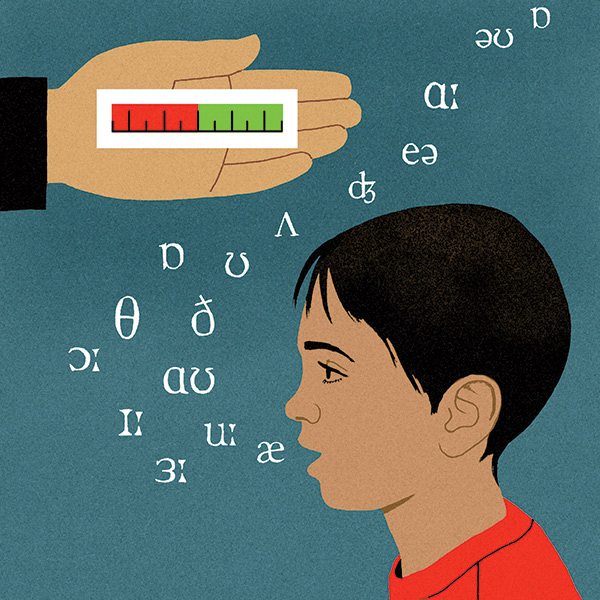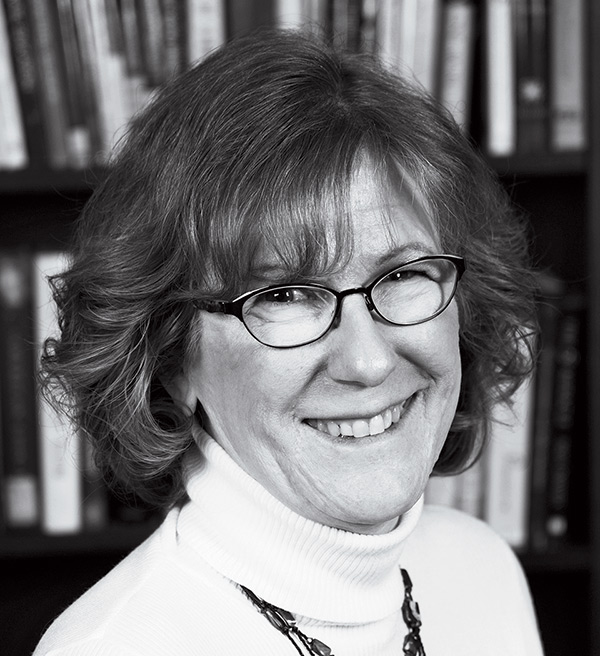
Illustration: James Steinberg
Carol Scheffner Hammer was once a speech pathologist on Saipan, in the United States Commonwealth of the Northern Mariana Islands.
“The whole island is four by 11 miles but encompasses 14 languages,” recalls Hammer, Professor of Communication Sciences & Disorders. “You couldn’t find much about it online, so instead of acting as the expert, I learned about the culture from the parents of children I was treating. Then I worked from their perspective.”
Today Hammer applies that approach in two federally funded projects. In one, she is developing the first tool for gauging literacy development in preschool-aged bilingual (English/Spanish) children. In the other, she is co-developing online training for parents of children with language disorders.

“Assessing preschoolers’ literacy development “would help us identify problems and intervene when we can really make a difference.”
— Carol Scheffner Hammer, Professor of Communication Sciences & Disorders
Why assess literacy in preschool, when children aren’t reading? Because that’s when kids develop an important precursor skill called phonological awareness — the ability to hear and manipulate words and parts of words.
“An assessment given at this age would help us identify problems and intervene when we can really make a difference,” says Hammer.
Teachers would use an app to show children groups of pictures and, for example, ask them (in both languages) to identify the image that rhymes with a particular word or sound. Each child’s score would be compared against norms that Hammer and her team are establishing through a study of 900 bilingual children.
“The norms will tell us where a child stands on a continuum and where to start intervention, if needed,” Hammer says.
The coaching program for parents of preschoolers with established language disorders also is aimed at predominantly low-income, minority families. Parents would learn language improvement techniques they can embed in children’s everyday activities through an app.
“I came to TC because our program is unique in its focus on diversity, bilingualism and multiculturalism,” Hammer says. “We do intervention research aimed at making a difference in people’s lives.”